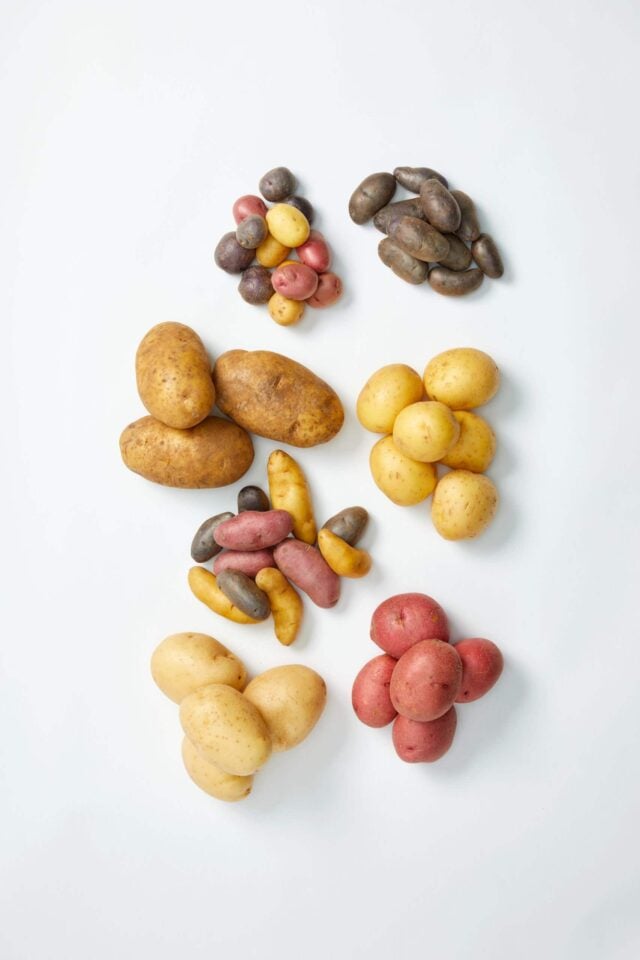Potatoes have been a staple food in diets around the world for centuries. Often dismissed as just a source of carbohydrates, these humble tubers are packed with essential nutrients that provide numerous health benefits. From fueling your body with energy to supporting immune health, potatoes deserve their place as a nutritional powerhouse. This guide dives into the key reasons why potatoes should be a part of your balanced diet.
A Source Of Complex Carbohydrates
At the core of nutritional benefits of potatoes is its carbohydrate content. Complex carbohydrates, the body’s main energy source, are abundant in potatoes. Complex carbohydrates provide a consistent source of energy throughout the day since they break down more slowly than simple sugars. This makes potatoes an excellent choice for athletes or anyone needing long-lasting fuel. A medium-sized potato contains roughly 37 grams of carbohydrates, which can help maintain stamina and mental focus.
Rich In Vitamins And Minerals
Vitamins and minerals that are needed for general health are abundant in potatoes. One standout is vitamin C, which supports immune function, skin health, and wound healing. One medium potato, skin on, provides around 30% of the daily required amount of vitamin C.
Additionally, potatoes are a good source of potassium—a mineral crucial for heart health, nerve function, and muscle contractions. In fact, potatoes contain more potassium per serving than bananas, often hailed as the go-to potassium-rich food. The presence of magnesium, phosphorus, and iron in potatoes further enhances their role in promoting strong bones, healthy blood, and optimal metabolic function.
Dietary Fiber For Digestive Health
Eating potatoes with their skins on significantly boosts their fiber content. Maintaining a healthy digestive tract, avoiding constipation, and encouraging the development of good gut flora all depend on dietary fiber. Additionally, fiber slows the absorption of carbohydrates, which helps control blood sugar levels. This makes potatoes a suitable food choice for those looking to maintain steady energy levels and improve overall digestion.
Protein In A Plant-Based Package
While not typically celebrated for their protein content, potatoes contain about 4 grams of protein per medium-sized serving. For plant-based eaters, this adds another layer of nutritional value to potatoes. Because potatoes contain all nine essential amino acids, albeit in lesser amounts than animal-based proteins, their protein is regarded as high-quality. Pairing potatoes with other protein-rich foods can create a well-rounded meal.
Antioxidants For Cellular Health
Potatoes also boast a range of antioxidants, including flavonoids, carotenoids, and phenolic acids. These substances aid in the body’s defense against dangerous free radicals, which can injure cells and have a role in the development of chronic illnesses including cancer and heart disease. Colored potato varieties, such as red, purple, and blue potatoes, are especially rich in antioxidants, offering even greater health benefits than white potatoes.
Low In Calories But Satiating
One of the biggest misconceptions about potatoes is that they are inherently fattening. In reality, a plain medium-sized potato contains just 110 calories. It’s how they are prepared—think deep frying or heavy toppings—that can turn them into calorie-dense foods. When boiled, baked, or roasted, potatoes provide a filling and low-calorie food option. They help prevent overeating and promote feelings of fullness because to their high fiber and water content.
Supporting Heart Health
Potatoes contribute to heart health in multiple ways. Their high potassium content balances the body’s sodium levels, which helps control blood pressure. Additionally, the fiber in potatoes can reduce cholesterol levels, while antioxidants combat oxidative stress that can lead to cardiovascular issues. A heart-healthy diet that includes potatoes may lower the chance of hypertension and other heart-related disorders.
Versatility In A Balanced Diet
One of the greatest advantages of potatoes is their versatility in cooking. Whether baked, boiled, roasted, or mashed, potatoes can complement a variety of meals. Pair them with lean proteins, healthy fats, and plenty of vegetables for a balanced dish. Using spices and herbs to flavor potatoes instead of heavy sauces or butter can keep meals nutritious and flavorful.
Conclusion
Potatoes are far more than just a comfort food—they’re a nutrient-dense option that supports energy, digestion, heart health, and more. Potatoes are a great complement to any meal plan because of their remarkable variety of vitamins, minerals, antioxidants, and fiber. You may get the most out of these adaptable tubers by using healthier preparation techniques and consuming them sparingly. Embrace potatoes as a wholesome and satisfying part of your diet, and let their nutritional power nourish your body from the inside out.

